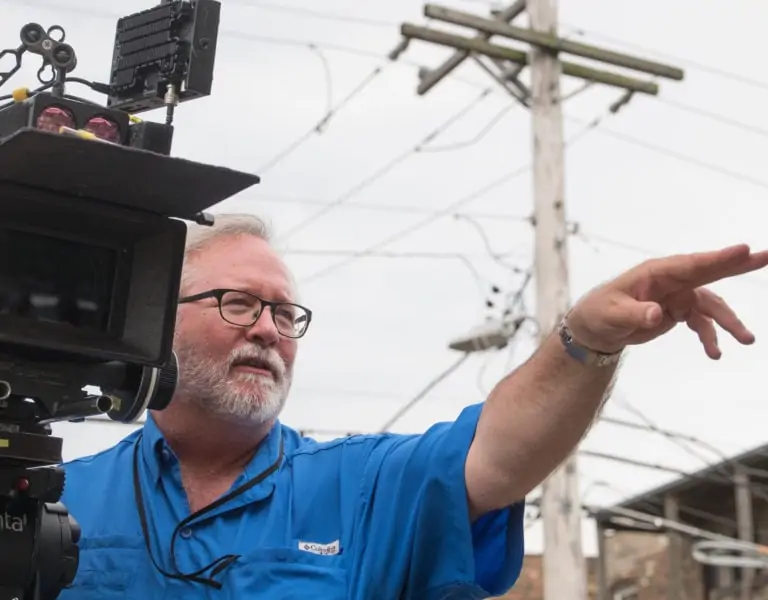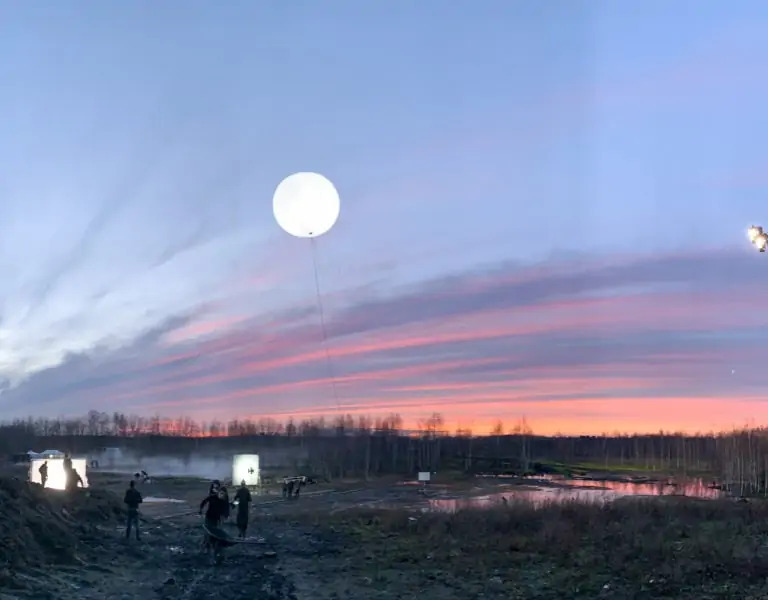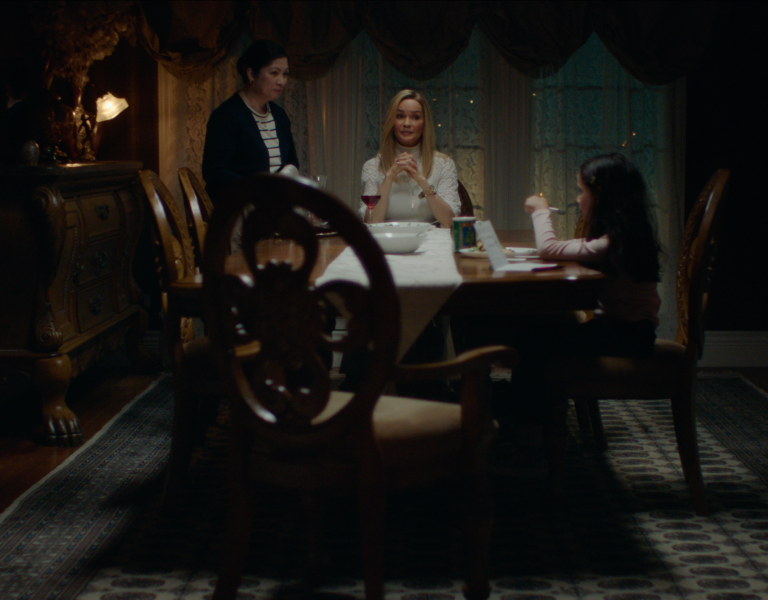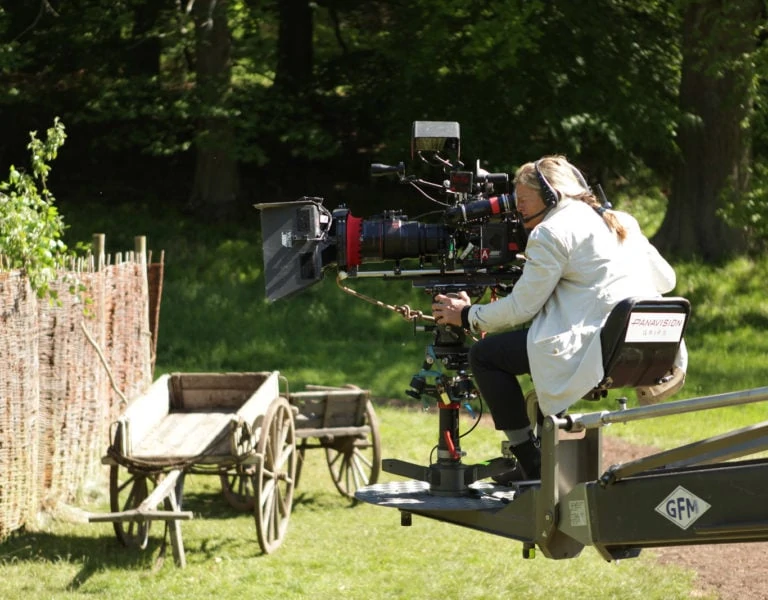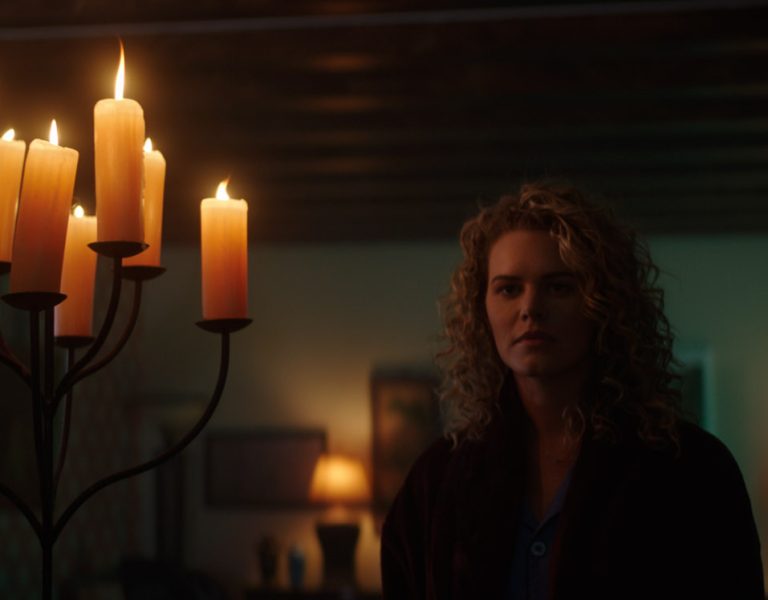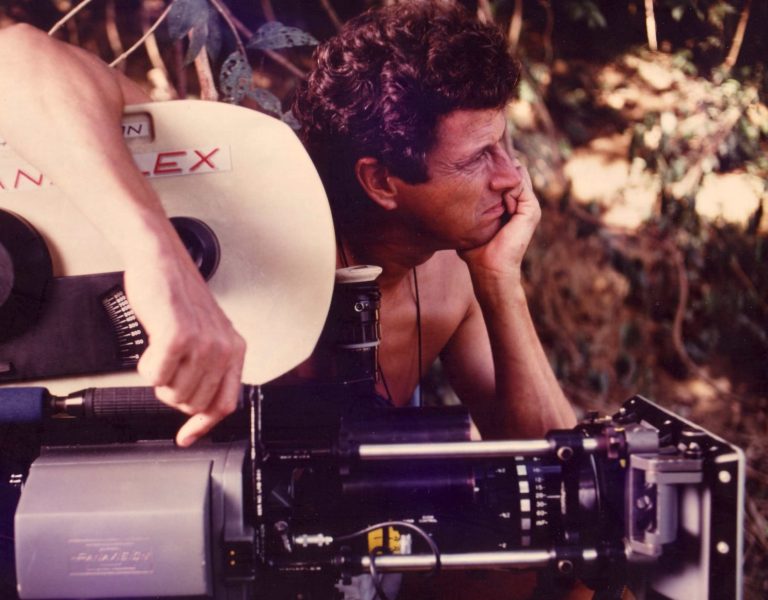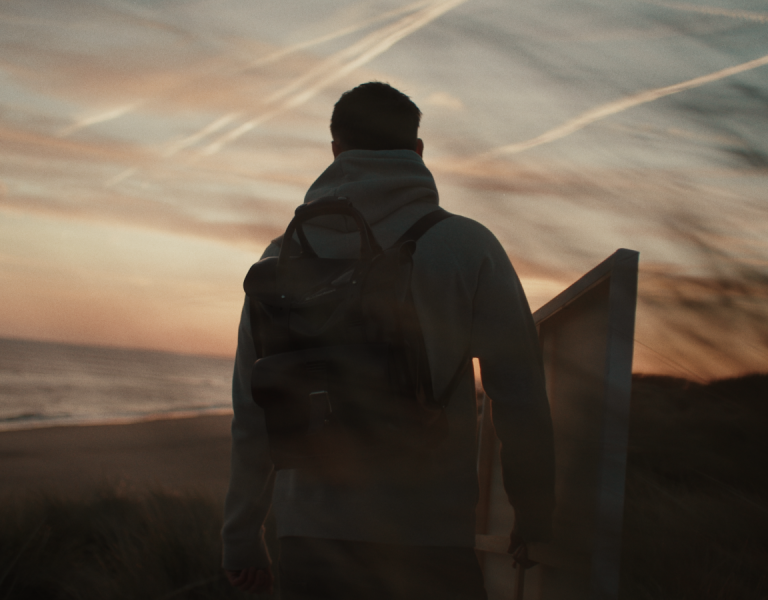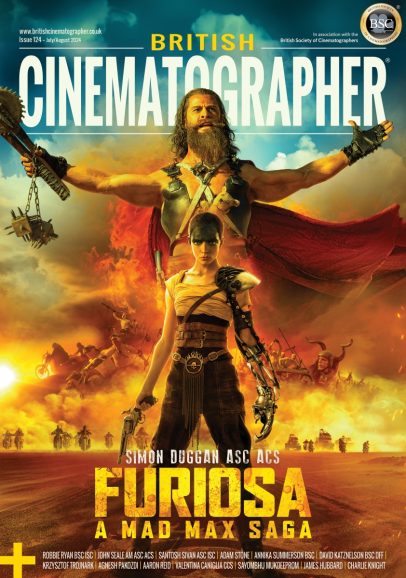With the new year, a fresh direction for the GBCT awaits. The Guild’s new chief operating officer, Lorraine Luke, introduces herself and her fascinating career spanning both the film and healthcare industries.
STATEMENT FROM THE GBCT BOARD:
The GBCT Board is pleased to announce that Lorraine Luke has been appointed to continue and expand on Dee Edwards’ wonderful legacy. She started on 15 January 2024 and has the full support of the Board, as it restructures and concentrates on building on and improving its diversity and inclusivity, as well as encouraging members in their career development and progression.
Lorraine started her career in the film industry in 1989 as a JOBFIT trainee. By 1991 she was regularly employed as a clapper loader and progressed to focus puller from 2000. She was highly regarded and sought-after but decided, after much thought, to leave the industry in 2007. She then re-trained in complementary healthcare, with a particular interest in mental health.
Lorraine’s knowledge and experience from being in the camera department, combined with the caring and compassionate qualities that led her to retrain, make her perfect for the job of steering us all into a productive and fulfilling 2024.
In her own words: Introducing Lorraine Luke
Tell me about your early life.
I was born in North West London and went to a well-known girls school in the area. I was a day dreamer and won a few writing competitions as a child. My mother had been an English teacher in Trinidad and was a stickler for good grammar, spelling and punctuation. She encouraged me and my sister to join children’s book clubs, thus ensuring we read a lot. By the age of 4, my younger sister had a reading age of 12. She should have been fast tracked, but was held back by the education system. Both my parents were brilliant at maths – one of my worst subjects at school. Funnily enough, since I’ve been an employee, I’ve often been tasked with managing the finances! My secondary school predominantly catered for the daughters of thespians and writers, but I chose to study Fine Art at the Chelsea School of Art, as I wanted to get into advertising. I was firmly discouraged by a woman from a renowned advertising company who told me how difficult it would be for me to make headway in the industry, ironically due to ‘isms’. Ironic also that the first film I worked on was How to Get Ahead in Advertising! Fortunately for me, one of my tutors told me about Jobfit, subsequently known as FT2, which was an ACTT (now BECTU) initiative introducing Trainee schemes to the film industry. This led to 18 interesting years starting out as a Trainee and working my way up to Focus Puller. I loved the travel and the company of a good number of my colleagues, many of whom became great friends. The less loveable colleagues at least supplied some excellent stories, as well as inadvertently firing my interest in mental health.
Did you go to the cinema when you were growing up?
I rarely went to the cinema as a child and when I did, it was with my mother and sister to watch animated films, which were a form of escapism for me. Cinemas were nowhere near as glammed up as they are now. Sticky floors and equally disgusting seats made me want to get out of there as quickly as possible.
What about Television? What Programmes did you watch?
If I wasn’t with my parents, I was at school. I wasn’t allowed to watch much tv, as life was about ‘education, education, education’. This restricted my viewing to educational and creative children’s programmes. However, I come from a culture of storytellers, my father being one of the best. I’d be in the midst of the storytelling when family friends visited, which was most weekends. I later came to realise that this was a form of escapism from their weekday experiences of work, the racism they encountered and the isolation they felt. The storytelling was enhanced by my mother’s great food. She’s a brilliant cook. Add some good West Indian rum and the storytelling, which was often hilarious, began. Family friends who’d returned from visits back home in the Caribbean would bring the latest calypsos for everyone to analyse the lyrics. My favourite uncle, who had served in the RAF during World War Two was a frequent visitor, but rarely contributed. I wish I’d been old enough to ask about his stories, but sensed his reluctance to revisit those tough memories.
What was your best and worst job?
My best job in the film industry was as a 2nd AC on The Secret Garden, as I was fortunate enough to work with Roger Deakins, now Sir. The experience was enlightening and the man himself was incredibly humble. I’ve also been extremely fortunate to have worked with amazing members of the Guild, who I won’t name, for fear of their heads getting too big!
Worst job: It wasn’t the job itself, but the experience of working with some unsupportive and hostile people, who had either wanted someone else or had unresolved personal issues. I’ve had a number of those experiences during my film working life. It wouldn’t be fair to name names, as I decided a long time ago to let karma take its course.
What are you passionate about?
I’m passionate about combatting injustice and ensuring inclusivity, helping colleagues attain good mental and physical health and for people to be seen and heard.
What gets you out of bed in the morning?
The gym class I attend most mornings at 7 a.m. This gives me the physical and mental strength to cope with the day ahead.
What’s your proudest achievement?
My proudest achievements are projects that I’ve instigated and continue to this day, one of which is the MS West Central London branch. I helped set it up with three people who all had multiple sclerosis. As a qualified medical herbalist and clinical reflexologist, I’d been working with an MS nurse, showing her patients techniques that they could use to help relieve their symptoms. The MS West Central London branch is now thriving and runs many events such as yoga, Pilates and coffee mornings, as well as details of the latest trials, etc. I’ve recently been involved in providing information about life with MS for the development of an app to help reduce MS fatigue.
Tell me about your involvement with Grenfell?
Following the Grenfell Tower fire in 2017, the local borough set up a series of funding projects for local people to be in charge of what they felt their community needed. I won funding to develop a series of complementary therapies for those who did not meet the criteria for NHS treatment under the Grenfell Wellbeing Service. I set up a CIC (Community Interest Company) in order to receive the funding and run the project, which went on to treat the Grenfell survivors and bereaved c/o a different funding stream.
Do you have a favourite book?
It’s impossible to have a favourite, but To Kill a Mockingbird was ahead of its time and made a deep impression on me. I also like anything by Toni Morrison. I read a lot of books on health, as I like to keep up-to-date with the latest findings. The Immortal Life of Henrietta Lacks written by Rebecca Skloot is a favourite. It’s the real-life story of a Black American woman in the 1940s/50s, whose cervical cancer cells doubled every 24 hours. Her cells, named HeLa cells after her, have been used to study the effects of toxins, drugs, hormones and viruses on the growth of cancer cells without experimenting on humans. They have also been used to test the effects of radiation and poisons, to study the human genome and to learn more about how viruses work, as well as playing a crucial role in the development of the polio and COVID-19 vaccines. Medical labs and institutions made millions from her cells, while her family remained in poverty. The writer went on to shame the medical institution into providing funding, so that anyone related to her could improve their lot.
Do you have a favourite film?
The Shawshank Redemption. A terrific story celebrating freedom of spirit in adversity, true friendship and salvation.
How do you relax?
A good holiday abroad is high on the list. As is dinner with friends – good food, good company, good stories and plenty of laughter. I never tire of watching the American sitcom Frasier, plus cleverly scripted, observational UK sitcoms from the past such as Keeping up Appearances and My Family. I made a set of curtains recently and found the process unexpectedly therapeutic.
Who are your role models and why?
My parents are my role models. I haven’t come across many people who hold their values of decency and integrity, while remaining balanced and humble. They’ve always left the ignorant, hostile people they’ve encountered to God. I understand why they responded as they did. By contrast, I’m happy to exercise the right of the next generation and am known for speaking truth to power and calling out bad behaviour.
What plans do you have for the GBCT?
I feel extremely privileged to be taking up the mantle of running the Guild of British Camera Technicians. I met Dee a few times when I worked in the industry and was fully in awe of her and the work she did. She’s left big shoes to fill! Fortunately, the Board consists of an amazing group of people, who I believe will support me, as I will support them and all the GBCT family. It’s important to build on Dee’s achievements and to acknowledge Tim Potter’s hard work in keeping the Guild office running over the last year. I’m looking forward to being part of the tremendous energy and enthusiasm of the Board, as they take on an impressive re-structure, of which more in the next missive from GBCT news. The ultimate aim is for the Guild to be held in such high regard that the members will be the first port of call for British film crew. I will be involved in all aspects of running the Guild and continuing its pursuit of excellence through training and having a membership second to none in terms of skills and professionalism. I plan to set up a Guild mentoring scheme, which will be designed to support members with their career progression up to Operator level. I will also support the Board members in their work broadening the Guild’s reach, so that it’s not London-centric but inclusive of the Four Nations of the UK.
What’s your go to Karaoke song and why?
Bridge over Troubled Water – Simon & Garfunkel’s renowned ballad was written and composed by Paul Simon after being inspired by the gospel song, ‘Oh Mary, don’t you weep’. The gentle piano chords, the emotive lyrics and Art Garfunkel’s rendition drew my attention to it. The song is a classic, offering reassurance to anyone going through a difficult time. Aretha Franklin’s 1972 cover version went on to win her a Grammy.

STOCK MANAGEMENT
The GBCT’s 16 and 35mm film familiarisation course offered participants a thorough grounding in the mystical arts of celluloid.
16 prospective new Guild members, a healthy mix of 1st ACs, 2nd ACs and trainees, gathered at Panavision from Tuesday 21 – Friday 24 November for a packed four days of learning the mystical arts of working with film. Social media’s power is such that the majority had heard about it via the GBCT Instagram.
The course was run by Roland Phillips, ably assisted by Leo Winslow, Clare Fuller and Christian Hughes. It was a comprehensive mixture of theory and practical experience, providing a thorough grounding in the process from ordering the stock to labelling and sending the rushes, with all points in between. This included a general overview of the history of film, an introduction to the kit, the paperwork, different camera systems and laboratory technology. As a bonus Sam Clark, Kodak’s sales director, visited and gave a very informative and greatly appreciated presentation. Equally welcome and helpful was a virtual tour of Cinelab, hosted by their sales director Roger Harlow.
By the end of the course, the group had learnt to be confident about managing mags, maintaining the film stock inventory, clear, correct labelling and (very important) legible report sheets. They now understand the threat posed by hairs in the gate, run-outs, fogging, spooling, noisy mags, scratches and ripped perfs, to name but a few of the many trip hazards for inexperienced film loaders.
THE TUTORS:
Roland Phillips GBCT
“I started in the film industry as a runner in a variety of post-production and production offices, before moving across to set as a floor runner and PA. During this time, I managed to spend a short period as a trainee at one8six, a camera rental company, which provided a route on to set as a camera trainee.
“I had the good fortune of being one of the 2009 Guild of British Camera Technicians’ intake of camera trainees. After about three years, I moved into the role of clapper loader. My work ranges across feature films, TV drama, comedy, commercials and music videos.
“I’ve been one of a pool of GBCT tutors for a number of years, which I’ve greatly enjoyed, both the teaching and the opportunity to test out my terrible Dad jokes, for which I’m notorious. Did you know that British people are getting used to the metric system, inch by inch?”
Leo Winslow GBCT
“I’m a career clapper loader. I went freelance 10 years ago, having started as a runner when I was 19, followed by three years at ARRI Rental as a technician. Since then, I’ve worked on features and dramas as well as commercials across a variety of formats.
“I was lucky enough to learn film convention when shooting on it was the norm and there was a vast pool of experience to draw on. It’s still my preferred format, due to the challenge, the responsibility and the discipline required. I think that it’s important to continue that tradition and ensure that the knowledge is passed on and the culture of excellence in technicians on film productions is maintained.
“I was very pleased to be given the opportunity to work as an instructor and to meet the next generation of film loaders.”
Clare Fuller GBCT
“Everything was shot on film in 2004, when I started as a trainee in the TV & film industry. I moved on to 2nd AC after two years and worked primarily in the UK, but also in Australia for a couple of years. Currently I work as a 2nd AC on commercials and as a drone AC. I recently completed a Shotover F1 training course and hope to also work as a specialist technician on helicopters and tracking vehicles.
“I thoroughly enjoyed tutoring alongside Roland on the GBCT Film Loading course. It was wonderful to share my knowledge and experience with accomplished and keen camera assistants.”
Christian Hughes
“I studied photography at university and favoured celluloid film, which influenced my decision to pursue a career in cinema. I started as a camera trainee during the pandemic and stepped up to loading as it ended. I stood in for Clare for one day of teaching and enjoyed both the challenge and the welcoming environment. I’ve worked on 16mm before, most recently on a Welsh language horror folklore short, but my experience pales in comparison with that of my colleagues.
“This course offers hands on experience with the kit and teaches the risk management which comes with the thrill of working with 16mm and 35mm. It’s a safe space to make mistakes and ask the questions there’s no time for on set. Roland’s an exceptional teacher and a font of wisdom. He has a true passion for his subject and inspired everyone in the room.”

